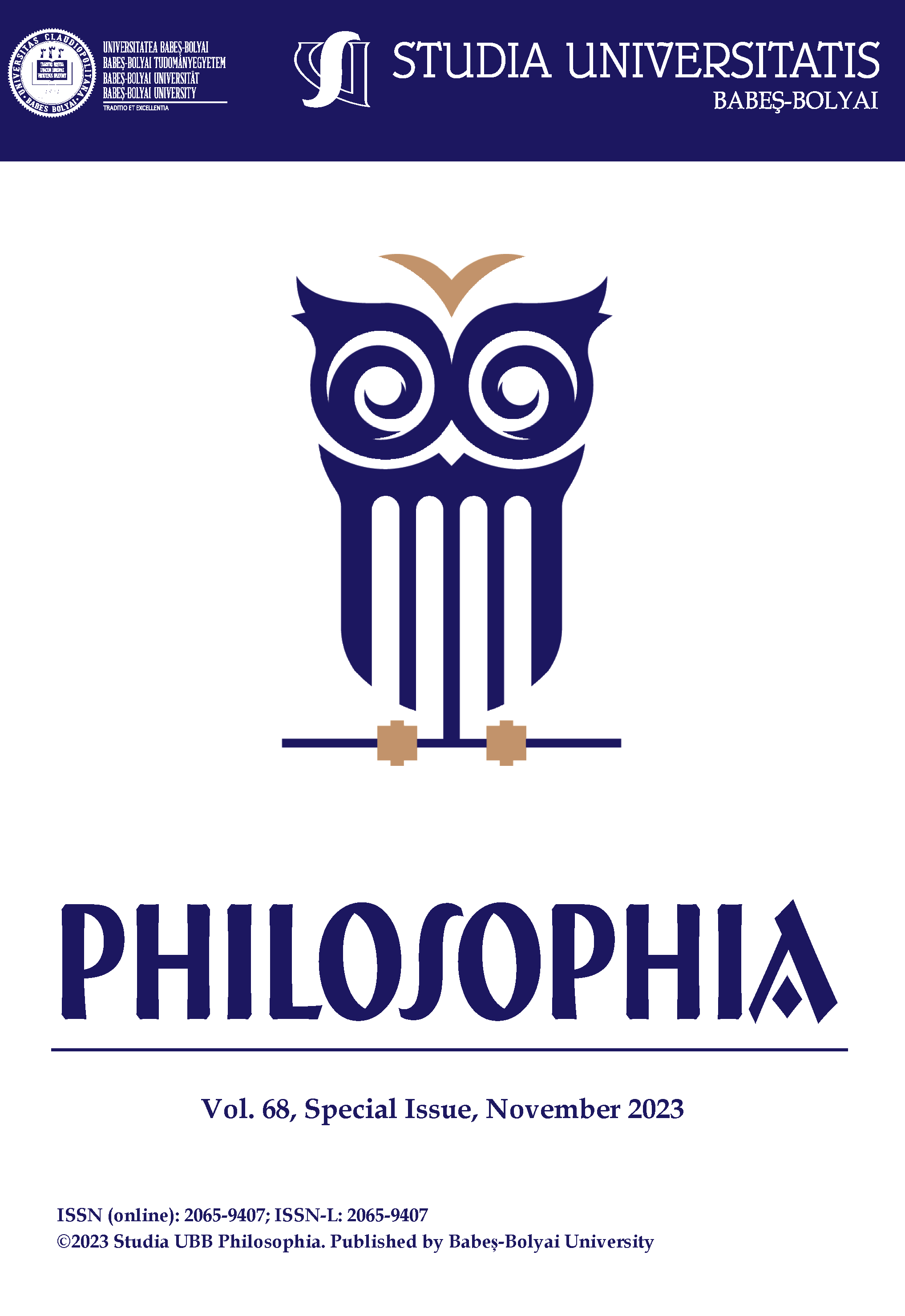Le « conflit » chez Michel de Montaigne
DOI:
https://doi.org/10.24193/subbphil.2023.sp.iss.09Keywords:
Montaigne, Essays, political philosophy, Renaissance, map, conflict, individual, society, political system, selfishness, solidarity, opinion, public life, moderation, otherness, private life, civil war.Abstract
“Conflict” in the Works of Michel de Montaigne
The “philosophical” style specific to Montaigne’s Essays, totally devoid of demonstration and system, gives the reader the possibility of “essaying” an experience of his own reading, based on the idea that “Words belong half to the speaker, half to the hearer” (III, 13). Following Montaigne’s idea that selfishness is the basis of solidarity between men (the basis of society), we can detect two levels in this political conception: 1) on the one hand, the relationship between the individual subject and his own complex state; 2) on the other hand, the relationship of the individual to otherness. For Montaigne, the first level is a priority and, as his own political experience shows, the individual subject has above all the duty to remain true to himself and to his own temperament. The duty to serve others is secondary, occasional and moderate. To complete the ideas that can constitute a “map” of Montaigne’s political philosophy, we have analyzed – quantitatively and qualitatively – the contexts in which the French philosopher used the word “conflict”. The examples confirm the predominance of the interior level of the individual subject and less of the relationship of the individual to otherness. To be active in the public sphere, the individual needs modesty and moderation in the expression of his opinions, as well as a rational evaluation when he wishes major changes; otherwise, they risk doing more harm than good to others. The individual must struggle internally with the weapons of reason, so as not to give in to irrational desires – such as revenge or carnal desires – which would affect others, which is virtue. An inner balance is necessary, and the others will gain from this.
References
André Comte-Sponville, Dictionnaire amoureux de Montaigne, Éd. Plon, Paris, 2020, p. 471.
Felicity Green, “Reading Montaigne in the Twenty-first Century”, dans The Historical Journal, 52, 4 (2009), Cambridge University Press, p. 1090.
Géralde Nakan, Montaigne et son temps, Éd. Gallimard, Paris, 1993.
J. B. Schneewind (ed.), Moral Philosophy from Montaigne to Kant, Cambridge University Press, Cambridge, 2003.
Jean-Yves Pouilloux, Montaigne. L’éveil de la pensée, Éd. Classiques Garnier, Paris, 2022
Michel de Montaigne, Les Essais (ed. Pierre Villey et V.-L. Saulnier), Éd. Presse Universitaire de France, 2013.
Philippe Desan (ed.), Dictionnaire Montaigne, Éd. Classiques Garnier, Paris, 2018.
Philippe Desan (ed.), Lectures du troisième livre des Essais de Montaigne, Éd. Honoré Champion, Paris, 2016, p. 67.
Thierry Gontier, L’égoïsme vertueux. Montaigne et la formation de l’esprit libéral, Ed. Les Belles Lettres, Paris, 2023, p. 100.
Ullrich Langer (ed.), The Cambridge Companion to Montaigne, Cambridge University Press, Cambridge, 2006.
Downloads
Published
How to Cite
Issue
Section
License
Copyright (c) 2023 Studia Universitatis Babeș-Bolyai Philosophia

This work is licensed under a Creative Commons Attribution-NonCommercial-NoDerivatives 4.0 International License.





